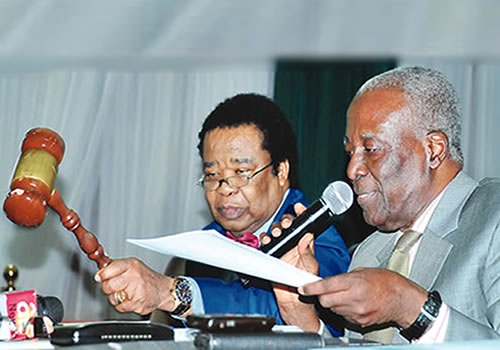THE National Conference has approved the decentralisation of the Nigeria Police Force as states can now establish their own police.
This resolution, when enacted into law, would put to rest the long debate and controversies over the establishment of state police. The state police, when established by states that desire them, are to complement the efforts of the Nigeria Police Force.
The areas of jurisdiction of the federal police will cover the entire country and on clearly spelt out matters and offences, while the jurisdiction of the state police will cover the state and operate within the laws enacted by the State Assembly.
The conference also resolved that in addition to establishing state police, states laws should also provide for community policing. The decisions were made while considering the report of the National Conference Committee on National Security.
The conference agreed with the report of the committee that state governors should be involved in the running of the federal police in their respective states. It was also agreed that officers of the rank of Deputy Superintendent of Police in the federal police should be deployed in their states of origin.
It was reasoned that this would address the concern of language and culture.
To make the police more people-friendly, the conference called for the amendment of section 214 of the 1999 Constitution so that the Nigeria Police Force will be called The Nigeria Police.
The conference, however, said that only states that felt that they had the capacity to fund and kit them should establish state police.
The delegates also adopted the recommendation that at least, 70 per cent of federal police officers from the rank of Deputy Superintendent to constable should be allowed to serve in their states of origin.
Meanwhile, the National Conference resolved that henceforth, any elected public office holder in the country who defected from his or her political party to another would automatically lose the seat.
Delegates at the conference also adopted the recommendation of the Committee on Politics and Governance that Nigeria should adopt a true federal structure with the states operating as the federating units.
Accordingly, the conference proposed stiff penalties for elected public office holders who move from one political party to another before the expiration of their mandates.
It said such elected public office holders who abandoned their parties midway for new ones were to lose their seats.
On practice of true federalism, it was agreed that the creation of local government areas be done by the states, as they deem necessary.
However, decision on establishment of the structure, composition, finance and functions of local government councils were put on hold pending discussions on the Report of the Committee on Political Restructuring.
On right to self-determination, the conference agreed that the minority groups that wished to exist as separate states and meet the criteria for state creation should be allowed to do so under the instrumentality of the relevant laws and procedures as part of their rights to internal self-determination.
The Independent National Electoral Commission (INEC) and the State Independent Electoral Commission (SIEC) are to fashion ways to ensure that physically challenged persons, especially lepers, are registered and actually vote in elections.
These were parts of the recommendations adopted by the conference during the debate and consideration of the Report of the Committee on Politics and Governance, headed by Professor Jerry Gana, with Chief Olu Falae as the co-chairman.
The conference also accepted the proposal that the government should not fund any political party, but that they should be funded through membership subscription, levies, donations, investments, sales of party cards and other fund raising activities.
The proposal that unelected chairmen of local governments, often referred to as tTransition committee chairmen or such unelected representatives at the local government areas should be sanctioned by withholding the statutory allocations pending the conduct of elections into such local governments was also accepted by the conference.





